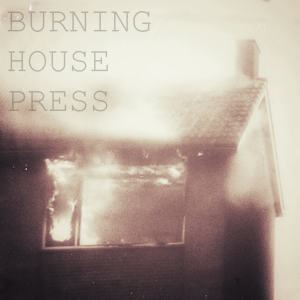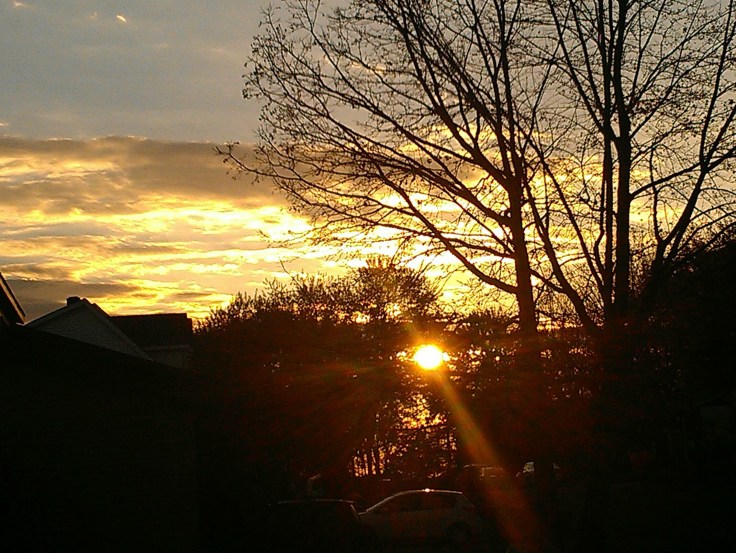I See My House, My Field
after Marianne Boruch
My son lives there now, in his winter
like a husky dog burrows in snow.
Most of the rooms (yes, I can see them from Florida)
are muted by cold, and the furniture
is still the maple my mother bought the year
she had her affair with my father.
My son doesn’t think of this as much as I do—
he has his own ghosts rustling the drapes
of the picture window in the small front room.
There are nights he calls me and plays a song
that reminds us of something from two decades ago
the way an echo fills a cup before it overflows.
This house he lives in, it is the house I lived in.
It is the house of my childhood,
of his childhood, of my mother’s death.
Across the street is a large field. “The prairie” we called
it, like that made it wild, but, there were wild onions growing
there long past WWII ended, when the small brick
houses were built so neatly in rows. I see my house, my field,
my childhood as it walks room to room. It climbs the stairs
and back down again to the kitchen in back, all enamored
and saddened for the missing parts: The orange clock
with the bee swinging behind its plastic face, the piles of Family Circle
and Woman’s Day magazines. My grandmother’s piano
and dentures, for she lived there too. Gone is the radio
atop the old Kenmore and Petula Clark telling us happiness
is downtown. And all this, in this house across from the field,
is the effrontery of windows assuming we’ll like the view,
the front door and carpet so sure we’ll always stay
with nowhere else to consider, no mark on a roadmap
to reach, no occasion calling. And all its voices held there, against plaster
and time. In summer they almost drift and move away
but each winter pulls them back to the bricks and floorboards.
Forgiveness. This is not yet in my house. It shimmies
from the small bedroom where Grandmother died to the hall
floor where my mother waited days for someone to find
her. It ascends the stairwell to reach the bed where my son now sleeps
and I see him sleeping there. I can see across 1500 miles
to the emptiness with its missing teeth, shoes, and canes.
The branches of the large backyard maple cut down
decades ago still scratch at the window. It is winter now, the bees
of the field are all sleeping. My son is still sleeping and I watch
him like a ghost longs for its skin. After midnight, near the black-blue
of morning, I move through house to yard to watch the half-moon
weep just a little. Or is it my mother’s face? Maybe my mother and her’s—hands
clasped in death like never I witnessed in life, only they are smaller
now, in their shrouds, and floating in the branches of the long-dead tree
hoping to snag them, to keep them in the backyard of my childhood
where I sing to Baby Tears, not even imagining it would be strange
someday to cry for a man sleeping on the second floor,
my old bedroom, a man who I cannot reach, who I cannot touch,
the man who is my boy sleeping in the snow of our winter.
When Our Children Died
Woman
tree in cold fog
like bark of birch in dim
winter as she bends back in wind
until
children
come back from graves.
A child’s death is wood
gone wild. A thousand years settle
on sky.
Windy
days each river
is a floor embedded
with feathers. Women walk dry-beds
weeping.
Last Day of 2018
(with Mary Craig)
Unsettled and feeling strangely weepy,
I may tattoo Per Aspera ad Astra to the inner wrist
for “through hardship to the stars,”
a gift of tender wrist to inky needle.
My starry tears have awoken from a night
of violent cricket song,
but before the nocturnal opera’s ended
before the faceless chorus shuffles
from the gaping stage and, singing, settles
into vacant seats around me
like thespian junkies hungry for the play
I’ve not yet written. I, myself, take the needle
and hover. Phlebotomists prefer the left. Hydrangea
blue emerges double-stranded from my palm
and deltas where my watchband rests.
On my right, veins draw an “H” I trace
for Horror and puncture the scudded skin,
living vellum ready to make record of the journey
its forever string of commas cut like sickles
through a lifetime’s curdled misery
now end-stopped in a point of fire.
And I ask if this should stop. Is the sickle sharp
enough to bring it to a close? Or is that why
the commas run around my wrist, an ink-twisted fate
I defy. Per, see that? I am ice. Asper . . . Hang
this rock face cut from sunless sky in a tapestry of ice,
slubbed and heavy on a warp of root and stone.
And here it is, last minute ebbing
with its stabbing thought:
There must be something else I should do

Judith Roney’s diverse work has appeared in numerous publications. Most recently, her chapbook, Waiting for Rain, received an honorable mention from Two Sylvias Press, and Field Guide for a Human was a 2015 finalist in the Gambling the Aisle chapbook contest. Her poetry collection, According to the Gospel of Haunted Women, received the 2015 Pioneer Prize. She confesses to an obsession with the archaic and misunderstood, dead relatives, and collects vintage religious artifacts and creepy dolls. She teaches creative writing at the University of Central Florida, is a poetry reader for The Florida Review, and a teaching artist for The Poetry Barn in West Hurley, New York.
*Judith Roney’s exquisite corpse partner for Last Day of 2018 is Mary Craig, who writes poetry and nonfiction and lives in southwest Germany.
photo credit: stephanie roberts Twitter Instagram SoundCloud


Leave a comment